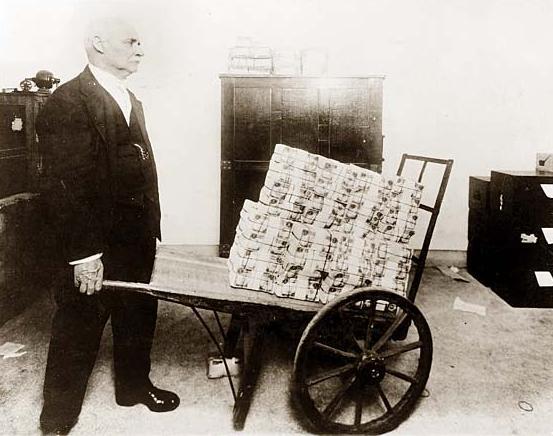Am I misreading the tea leaves? It seems like a lot of well-to-do New Yorkers are ready to pounce on the new mayor, Bill de Blasio, for any mistakes he makes while becoming acclimated to the job. Could it be that these are faux liberals who are secretly resentful about perhaps paying higher taxes? Maybe not. Time will tell.
From “What Lottery Winners and Tom Perkins Have in Common,” Charles Kenny’s new Businessweek piece about the thought process of a man who is awful even by the non-rigorous standards of the venture-capital world:
“Perkins had the chance to be a successful executive in the first place because he was born privileged enough to enter the Massachusetts Institute of Technology as an undergraduate in 1953, when a little more than 5 percent of Americans aged 25 to 29 had a bachelor’s degree. If he had been born in Liberia, perhaps to a single mother, all bets of billionaire status would be completely off. He surely worked hard, and took risks informed by smarts and insight, but he was incredibly lucky to start where he did and end up where he is now, with enough money for a classic car collection and a massive yacht.
Yet Perkins is far from alone in thinking he’s rich because he earned it and the poor are poor because they didn’t. Indeed, the view seems to be an almost unavoidable side effect of becoming wealthy. A study by British economists Nattavudh Powdthavee and Andrew Oswald released last week looked at lottery winners involved in a general survey of attitudes in the U.K. Comparing views before and after lottery wins, the economists looked at winners’ political allegiances and views toward income distribution. Those surveyed were asked if they agreed or disagreed with the statement ‘ordinary people get a fair share of the nation’s wealth,’ and if they supported the (more right-wing) Conservative Party or the (left-leaning) Labour Party.
A win of just £500 (about $840) made survey respondents 5 percent more likely to change their vote to Conservative from Labour and significantly more likely to think that the current distribution of income was fair. The larger the lottery win, the bigger the impact on the respondents’ beliefs—even though their income rankings rose purely by chance. Considering that Perkins’s earnings from betting on tech startups are more than 1 million times the £500 that Powdthavee and Oswald found sufficient to shift attitudes, and since he did far more to earn his wealth than the lottery winners did, his views on redistribution aren’t surprising.”


